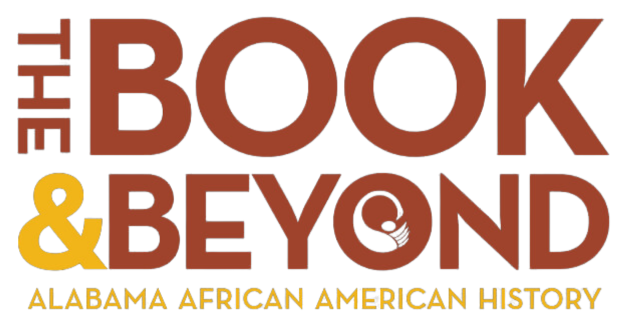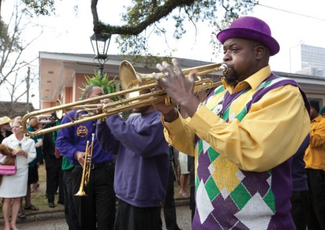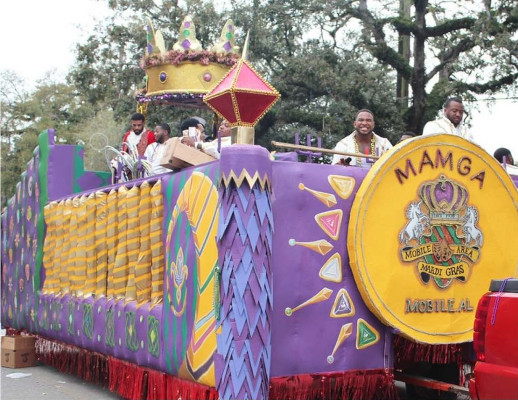
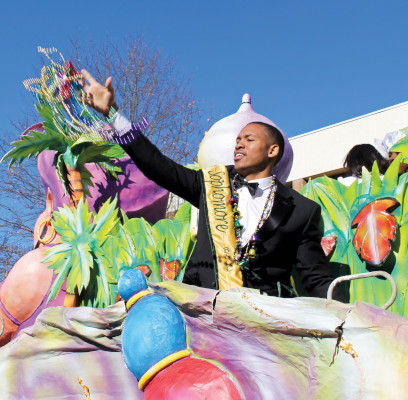
In 1703, the first traditional and organized Mardi Gras celebration in America took place in Mobile, Alabama. Mardi Gras is a Catholic festival that begins 40 days (not including Sundays) before Easter. The name is French for “Fat Tuesday,” which is the last day of merriment and feasting before Ash Wednesday and the start of Lent.
The festivities include:
- Parades where “krewe” members on the various floats throw treats including Doubloons, silver dollar-sized coins decorated with Mardi Gras parade themes
- Numerous formal balls.
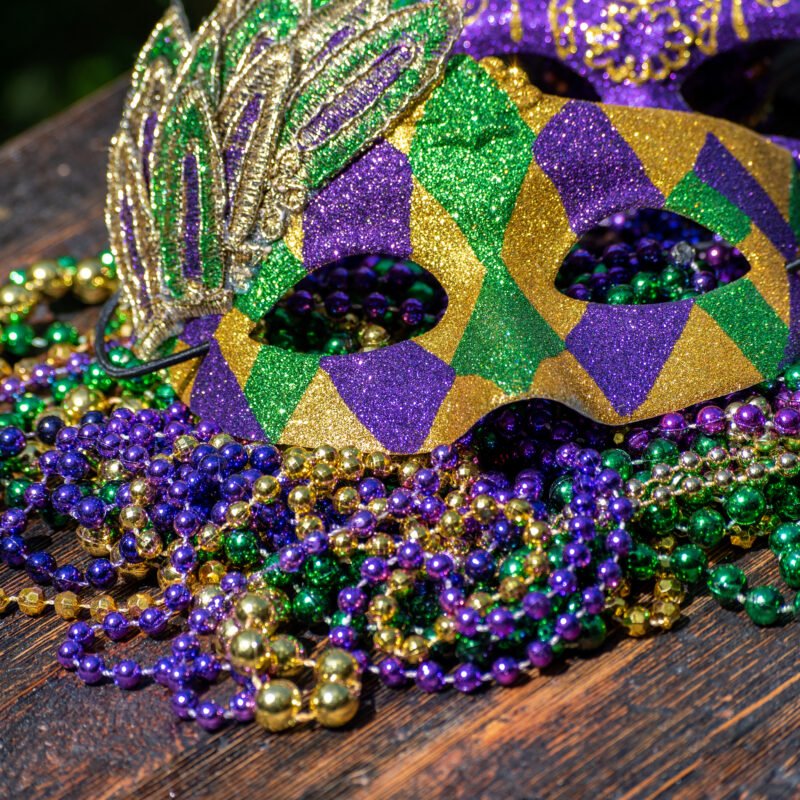
Mardi Gras colors are Purple, which symbolize Royalty and Justice, Green for Faith and Fertility, and Gold for Power and Riches.
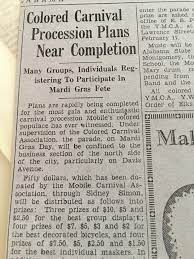
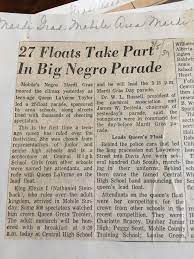
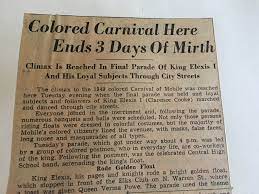
Newspaper articles covering “colored” Mobile’s Mardi Gras activities.
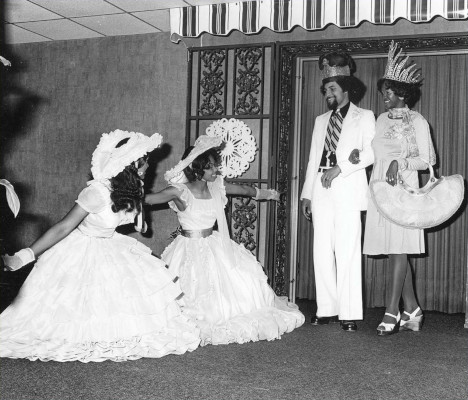
For nearly 200 years Mobile’s African American community could only watch the various Mardi Gras parades from a distance.
However, African Americans have always played an important role in Mobile’s Mardi Gras including:
- Building the elaborate papier-mâché floats that parade through the streets
- Designing and stitching the elegant, beaded costumes of Carnival “Royalty”
- Prior to electric streetlights, carrying the torches that lit the parade routes.
Additionally, African American businessmen provided mules that pulled the floats before automobiles, and rode on floats to ensure the mechanical figures worked. African American marching bands also provided music to delight the crowds both Black and White.
Prior to 1894, African Americans had no mystic societies or Carnival balls of their own until the Order of Doves was established. The Doves held their first ball in the Gilmer Rifles Armory and continued to host balls until 1914.
The first African American parading society, the Knights of May Zulu, organized by float-builder A. S. May in 1938, paraded along Mobile’s Davis Avenue until 1952. Parades and many of the formal balls include a “second line” of small bands and people who carry gaily decorated umbrellas and dance to music like, “Do Watcha Wanna” and “When the Saints Go Marching In”.
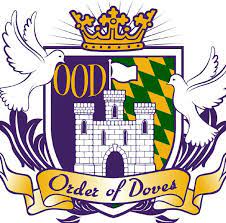
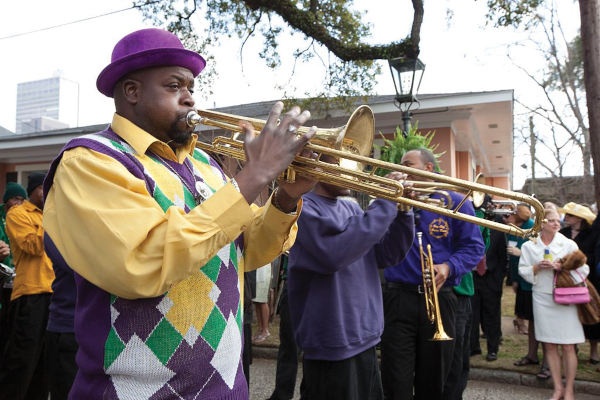
In 1938, the Colored Carnival Association (now Mobile Area Mardi Gras Association, or MAMGA) was incorporated under the trusteeship of:
- W. L. Russell, D.D.S.
- J.T. McKinnis, a local mortician
- Sam Besteda, Jr., a local tailor
- J.A. Franklin, M.D. for which the current 26 Franklin Primary Health Clinics are named.
Dr. Wilborne Russell, a respected dentist and civic leader was the first president and served for fifty years. He envisioned the carnival association as an outlet for the youth of the African American community and vigorously supported the Mission Statement of MAMGA to: “promote knowledge, arts, sciences; to create and cultivate interest in the celebration of carnival activities at Mardi Gras and to encourage its members to participate in all events that will enhance our civic and national betterment.”
Russell wrote the proclamation that is read every year at the coronation ceremonies and read it for 50 consecutive years until his retirement in 1987.
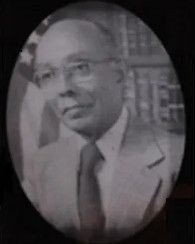
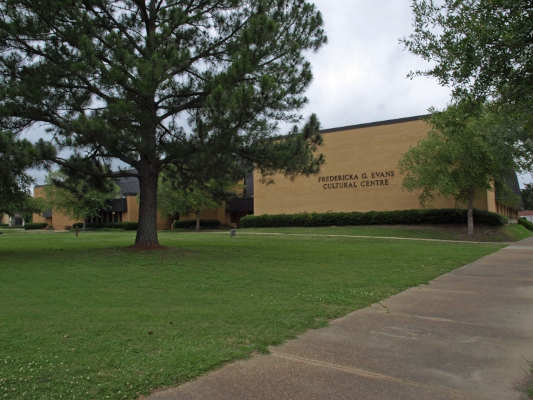
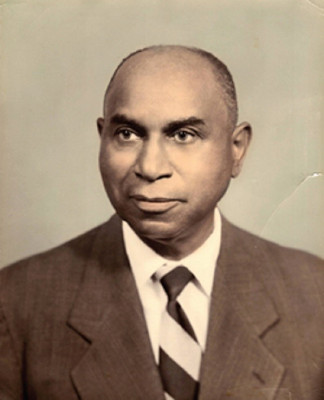
Mrs. Fredericka Evans was another pioneer who was committed to MAMGA. She was an instructor at Bishop State Community College (formally Mobile State Junior College). One of her most honored awards was the appointment to the National Youth Administration by President Franklin Delano Roosevelt.
It was Mrs. Evans who suggested the official title of King Elexis I to rule over the African American Mardi Gras celebrations. Mrs. Evans, as Chairperson of the Auxiliary Ladies group, worked tirelessly with the Royal Coronation every year until her death in 1967. To honor her memory, Mrs. Evans is referred to as the “Mother of the Colored Carnival”.
MAMGA held its first parade in 1939 and presented its first Royal Court in 1940. The late Alex Herman was King, and Aline Jenkins Howard was the first Queen. Throughout the years, many prominent Mobilians have participated in the annual Mardi Gras celebration events including the former U.S. Secretary of Labor Alexis Herman (daughter of Alex Herman) as Queen and Hall of Fame baseball player Henry Aaron as Grand Marshal. MAMGA proudly celebrates 84 years as an active organization of African American men in 2022.
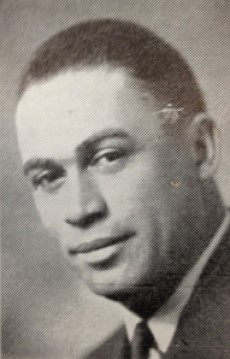
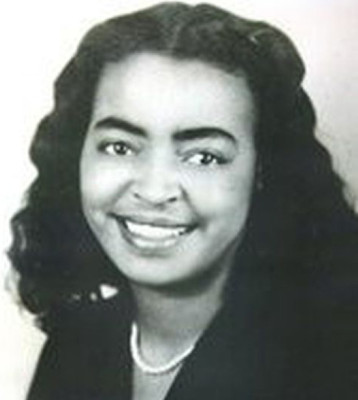
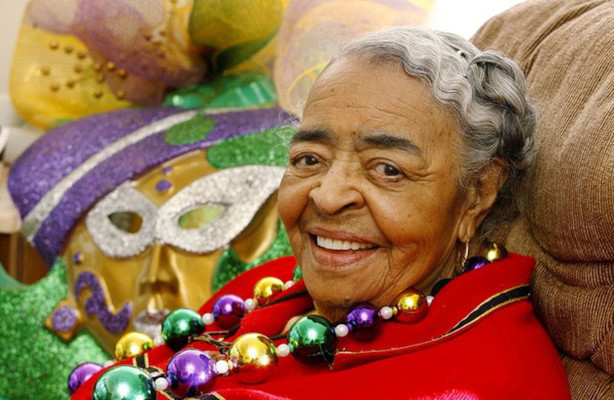
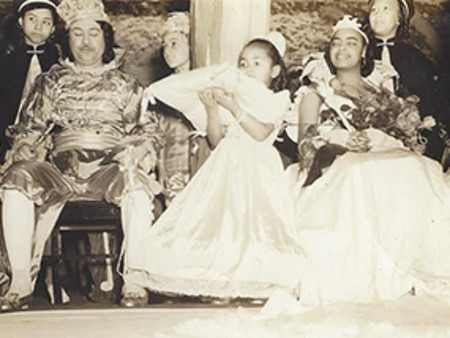




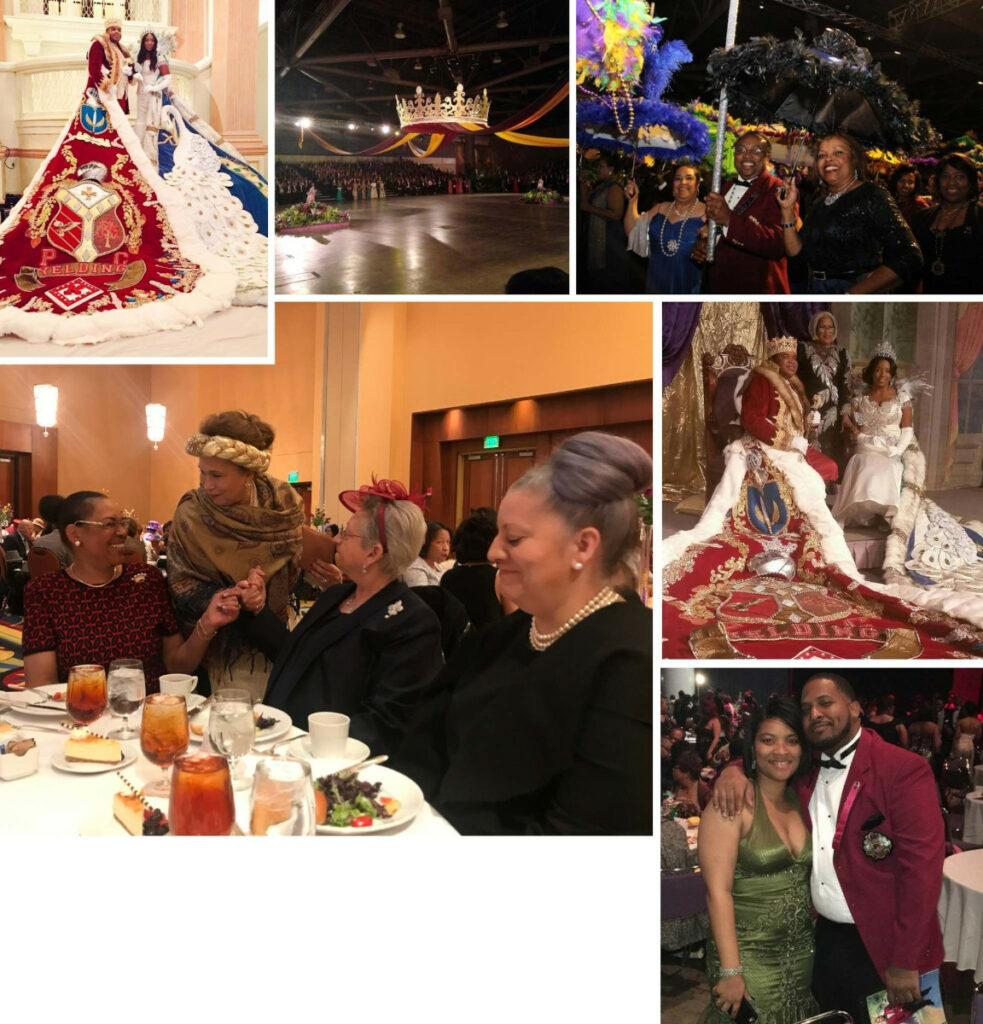
RESOURCES
- Mobile Area Mardi Gras Association (MAMGA): http://www.mamga.org/
- Encyclopedia of Alabama: http://encyclopediaofalabama.org/article/h-1437
- Wikipedia: https://en.wikipedia.org/wiki/Mardi_Gras_in_Mobile,_Alabama
